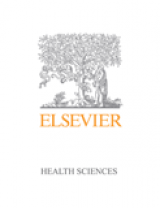INTRODUCTION TO MATERNAL-CHILD HEALTH NURSING
1. Foundations of Maternity, Women’s Health, and Child Health Nursing
2. The Nurse’s Role in Maternity, Women’s Health, and Pediatric Nursing
3. The Childbearing and Child-Rearing Family
4. Communicating with Children and Families
5. Health Promotion for the Developing Child
6. Health Promotion for the Infant
7. Health Promotion During Early Childhood
8. Health Promotion for the School-Age Child
9. Health Promotion for the Adolescent
10. Heredity and Environmental Influences on Development
MATERNITY NURSING CARE
11. Reproductive Anatomy and Physiology
12. Conception and Prenatal Development
13. Adaptations to Pregnancy
14. Nutrition for Childbearing
15. Prenatal Diagnostic Tests
16. Giving Birth
17. Intrapartum Fetal Surveillance
18. Pain Management for Childbirth
19. Nursing Care During Obstetric Procedures
20. Postpartum Adaptations
21. The Normal Newborn: Adaptation and Assessment
22. The Normal Newborn: Nursing Care
23. Newborn Feeding
24. The Childbearing Family with Special Needs
25. Pregnancy-Related Complications
26. Concurrent Disorders During Pregnancy
27. The Woman with an Intrapartum Complication
28. The Woman with a Postpartum Complication
29. The High-Risk Newborn: Problems Related to Gestational Age and Development
30. The High-Risk Newborn: Acquired and Congenital Conditions
31. Management of Fertility and Infertility
32. Women’s Health Care
PEDIATRIC NURSING CARE
33. Physical Assessment of Children
34. Emergency Care of the Child
35. The III Child in the Hospital and Other Care Settings
36. The Child with a Chronic Condition or Terminal Illness
37. Principles and Procedures for Nursing Care of Children
38. Medication Administration and Safety for Infants and Children
39. Pain Management for Children
40. The Child with a Fluid and Electrolyte Alteration
41. The Child with an Infectious Disease
42. The Child with an Immunologic Alteration
43. The Child with a Gastrointestinal Alteration
44. The Child with a Genitourinary Alteration
45. The Child with a Respiratory Alteration
46. The Child with a Cardiovascular Alteration
47. The Child with a Hematologic Alteration
48. The Child with Cancer
49. The Child with an Alteration in Tissue Integrity
50. The Child with a Musculoskeletal Alteration
51. The Child with an Endocrine or Metabolic Alteration
52. The Child with a Neurologic Alteration
53. Psychosocial Problems in Children and Families
54. The Child with a Developmental Disability
55. The Child with a Sensory Alteration
Glossary


